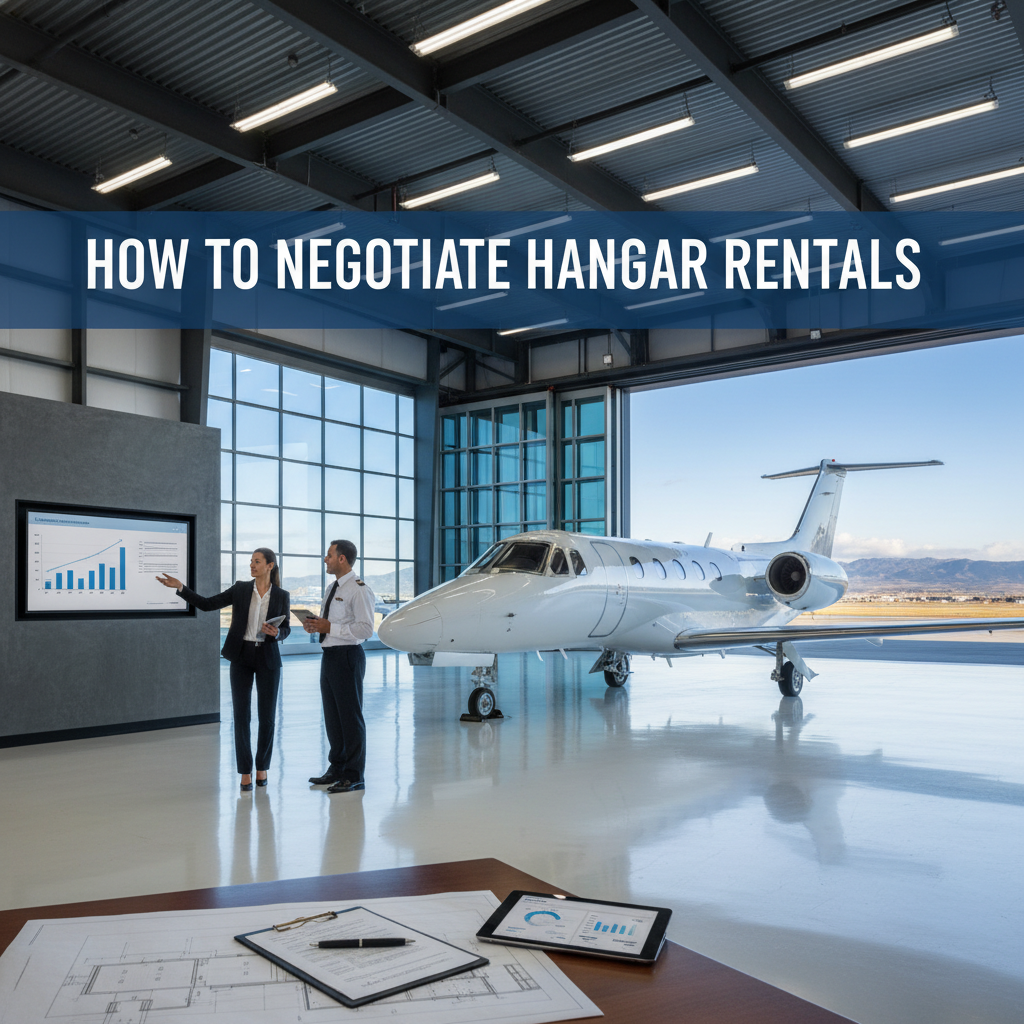How to Negotiate a Hangar Rental Contract
Leasing a hangar for your aircraft is a significant financial commitment. Proper negotiation is vital to secure favorable terms. Individuals and organizations can benefit from understanding the nuances of these contracts.

Research and Preparation
Conduct thorough research before entering negotiations. Start by identifying multiple hangar providers in your area. Compare their facilities, access, security, and services. Understand their pricing structures and typical lease terms.
Familiarize yourself with industry standards. This knowledge can provide leverage during negotiations. Being aware of what other tenants are paying can help argue for better terms.
Understanding Lease Terms
Leases can vary significantly. Key terms to understand include base rent, duration, renewal options, and termination clauses. Pay attention to what is included in the base rent. Some leases may bundle utilities, while others might charge separately.
- Base Rent: This is the primary cost. It may be quoted per square foot or on a flat monthly rate.
- Duration: Leases can range from short-term (month-to-month) to long-term (several years).
- Renewal Options: Terms for renewing the lease should be clear. Confirm if there is an option to renew automatically or if re-negotiation is required.
- Termination Clauses: Clauses outlining the conditions under which the lease can be terminated by either party should be detailed.
Inclusions and Responsibilities
Clarify what is included in your rent. Are maintenance and repair costs the tenant’s responsibility? Check if utilities such as electricity, water, and HVAC are included. Understand any common area maintenance fees that might apply.
Tenant responsibilities may also include insurance requirements. Some leases require tenants to carry specific insurance policies, including liability and property coverage. Confirm if you need to reimburse the hangar owner for their insurance costs.
Negotiating Terms
Start by determining your budget. Know your maximum rent and be ready to negotiate. Propose a reasonable offer based on your research of market conditions. Be prepared to justify your offer with data on comparable facilities.
Negotiate for favorable terms beyond just rent. You might request extended lease periods, renewal options, or reduced security deposits. Depending on the market, negotiating for extra services such as additional maintenance or increased security might be possible.
During negotiations, consider the potential need for future expansion. Secure the right to first refusal on additional space if your needs might grow. Negotiating caps on future rent increases is also worth discussing to protect against inflation.
Legal Review
Before signing anything, have a lawyer review the lease. Real estate lawyers specialize in spotting unfavorable terms. They can suggest amendments to protect your interests.
Ensure that the lease complies with local regulations. Misunderstandings at this stage can lead to costly legal issues down the road. Your lawyer’s input can be invaluable.
Building a Relationship
Forming a positive relationship with the hangar owner or manager can lead to better outcomes. Maintaining clear and respectful communication benefits both parties. It can make solving future issues easier.
Documenting Agreements
Ensure that all negotiated terms are documented in the lease. Verbal agreements are not reliable. Written documentation provides clear reference points.
Double-check all clauses for ambiguity. Ensure they reflect the understanding you reached during negotiations. Amendments should be clearly incorporated into the final contract.
Finalizing
Once satisfied with the terms, proceed with signing. Both parties should receive copies of the fully executed lease. Store your copy safely for future reference.
Regularly review the lease terms during the contract period. Stay informed about any changes that might require renegotiation or renewal.
“`
Recommended Aviation Resources
Pilots Handbook of Aeronautical Knowledge – $25.42
Essential FAA handbook for every pilot.
Aircraft Owners Handbook of Maintenance
Keep your aircraft in top condition.
As an Amazon Associate, we earn from qualifying purchases.



